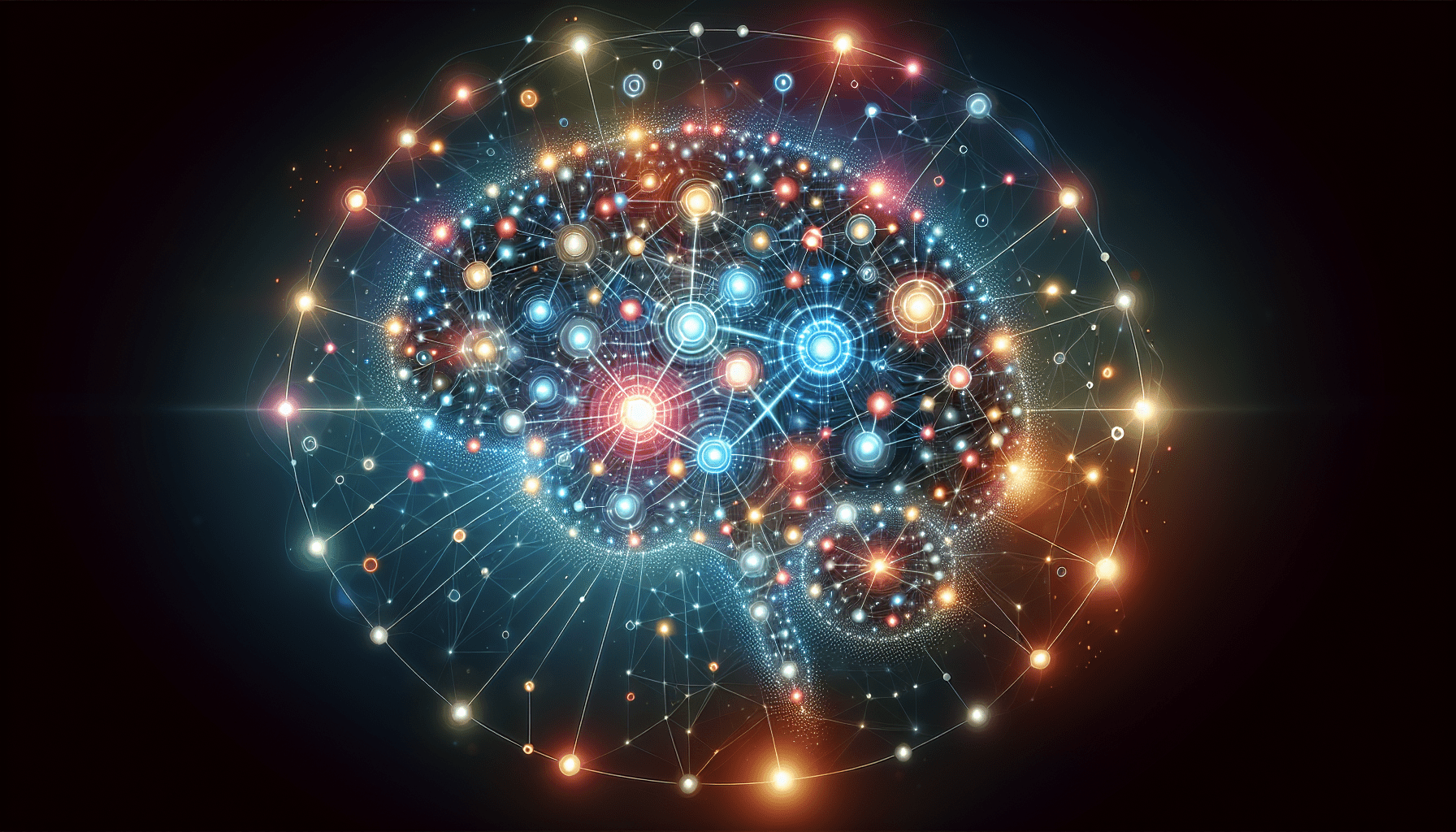If you’re new to the world of Artificial Intelligence (AI) and feeling a bit overwhelmed, fret not! This article is here to guide you on your journey towards understanding AI in the most accessible way possible. From demystifying complex concepts to recommending beginner-friendly resources, this newbie’s roadmap will equip you with the knowledge and confidence to navigate the exciting realm of AI. So, buckle up and get ready to embark on an adventure that will make Artificial Intelligence easy for you.

Understanding Artificial Intelligence
Artificial Intelligence (AI) is a fascinating field that focuses on creating intelligent machines that can simulate human cognitive functions. AI enables machines to learn, reason, and make decisions, just like humans do. It involves the development of computer systems that can perform tasks that typically require human intelligence, such as speech recognition, problem-solving, and decision-making.
What is Artificial Intelligence?
Artificial Intelligence refers to the ability of machines to exhibit intelligent behavior by analyzing and interpreting data, learning from it, and using that knowledge to perform tasks or provide insights. AI technologies can be broadly classified into two categories: Narrow AI and General AI.
Narrow AI, also known as Weak AI, is designed to perform specific tasks exceptionally well but lacks the ability to generalize beyond those tasks. For example, chatbots and virtual assistants like Siri or Alexa are forms of Narrow AI. They excel in speech recognition and language processing but are limited to specific domains.
On the other hand, General AI, also known as Strong AI, is a system that possesses the ability to perform any intellectual task that a human being can do. It can understand, learn, and apply knowledge to any given situation. General AI aims to replicate human-like intelligence and consciousness, although we are not quite there yet.
Types of Artificial Intelligence
There are several subfields of AI that specialize in different areas and approaches. Some prominent types of AI include:
-
Machine Learning (ML): Machine Learning is a subset of AI that focuses on enabling machines to learn from data without being explicitly programmed. It involves teaching machines to identify patterns, make predictions, and adapt based on experience. ML algorithms are the backbone of numerous AI applications.
-
Deep Learning: Deep Learning is a specialized branch of ML that utilizes neural networks with multiple layers to process vast amounts of data. Deep Learning algorithms can automatically learn hierarchical representations of data and extract valuable insights. It has revolutionized areas such as image recognition, natural language processing, and speech recognition.
-
Natural Language Processing (NLP): NLP enables machines to understand and interpret human language. It involves tasks like speech recognition, sentiment analysis, language translation, and chatbot interactions. NLP algorithms have become crucial in various applications, such as virtual assistants, customer service, and data analysis.
-
Computer Vision: Computer Vision is the field of AI that focuses on enabling machines to understand and interpret visual information. It involves tasks such as object recognition, image classification, and video analysis. Computer Vision has applications in areas like autonomous vehicles, surveillance systems, and medical imaging.
Applications of Artificial Intelligence
Artificial Intelligence has permeated almost every aspect of our lives, and its applications continue to expand rapidly. Here are some key areas where AI is making a significant impact:
-
Healthcare: AI is revolutionizing healthcare by improving diagnoses, providing personalized treatments, and predicting outbreaks of diseases. AI-powered systems can analyze medical records, identify high-risk patients, and suggest optimized treatment plans. It also assists in medical imaging interpretation, drug discovery, and remote patient monitoring.
-
Finance: AI is transforming the finance industry with applications like fraud detection, algorithmic trading, and customer service automation. It can analyze vast amounts of financial data, identify patterns, and make predictions for better investment strategies. AI-powered chatbots and virtual assistants are improving customer experience and optimizing financial processes.
-
Retail: AI is reshaping the retail industry by enhancing customer experience, optimizing supply chains, and enabling personalized marketing. AI-powered recommendation systems can analyze customer behavior and preferences to provide tailored product suggestions. Visual search technology enables customers to search for products using images, improving convenience and engagement.
-
Transportation: AI plays a crucial role in the development of autonomous vehicles and smart transportation systems. It enables the analysis of real-time traffic data, provides optimized routing, and enhances driver safety. AI-powered algorithms can also predict maintenance requirements, leading to more efficient transportation networks.
-
Education: AI is revolutionizing education by providing personalized learning experiences, intelligent tutoring systems, and automated grading. AI-powered platforms can adapt to learners’ individual needs, track progress, and provide targeted recommendations. It enables educators to focus on individual student growth and improve educational outcomes.
As the technology continues to advance, AI’s applications are likely to expand further into various industries and domains, bringing about significant transformations.
Getting Started with Artificial Intelligence
If you’re eager to delve into the world of Artificial Intelligence, here are some essential steps to get you started:
Setting Goals and Objectives
First and foremost, establish clear goals and objectives for your AI journey. Determine why you want to learn AI, what specific areas of AI you’re interested in, and what you hope to achieve. This will help you stay focused and motivated throughout the learning process.
Understanding the Basics of Machine Learning
Machine Learning is the foundation of AI, so gaining a solid understanding of its concepts and techniques is crucial. Familiarize yourself with key ML algorithms, such as regression, classification, and clustering. Learn about data preprocessing, feature selection, and model evaluation techniques.
Exploring Datasets for AI Projects
To develop AI models, you need access to datasets. Start exploring various datasets that are relevant to your area of interest. Platforms like Kaggle offer a wide range of datasets for different domains, such as healthcare, finance, and image recognition. Analyzing and working with real-world data will provide valuable hands-on experience.
Programming Languages and Tools for Artificial Intelligence
To effectively work with AI, you need to master programming languages and tools that are commonly used in the field. Here are some essential ones to consider:
Python and its Libraries
Python has emerged as the preferred programming language for AI and ML. Its simplicity, extensive libraries, and vast community support make it well-suited for AI projects. Libraries like NumPy, Pandas, and Scikit-learn provide powerful tools for data manipulation, analysis, and modeling.
R Programming Language
R is another popular language for AI and statistical analysis. It is widely used in academia and research. R provides a rich set of packages for statistical modeling, data visualization, and machine learning. If you’re interested in statistical analysis and data visualization, learning R can be beneficial.
TensorFlow and PyTorch
TensorFlow and PyTorch are popular frameworks for deep learning. These frameworks simplify the development and training of deep neural networks. TensorFlow offers a robust ecosystem and is widely adopted. PyTorch, on the other hand, is known for its dynamic computation graph and ease of use.
Jupyter Notebook
Jupyter Notebook is an essential tool for AI development. It provides an interactive environment to write code, visualize data, and share results. Jupyter Notebook supports various programming languages and is widely used for prototyping, experimentation, and collaborative AI projects.
Machine Learning Algorithms for Beginners
Machine Learning algorithms form the core of AI models. Familiarizing yourself with different types of ML algorithms is important. Here are some of the fundamental ones to start with:
Supervised Learning
Supervised Learning involves training models on labeled data. It aims to learn a mapping between input features and known output labels. Classification and regression are two common types of supervised learning. Classification predicts discrete labels, while regression predicts continuous values.
Unsupervised Learning
Unsupervised Learning involves training models on unlabeled data. The goal is to discover patterns and structures within the data. Clustering and dimensionality reduction are common unsupervised learning techniques. Clustering groups similar data points together, while dimensionality reduction reduces the number of input features.
Reinforcement Learning
Reinforcement Learning involves an agent learning from interactions with an environment to maximize a reward signal. The agent takes actions and receives feedback in the form of rewards or penalties. Through trial and error, the agent learns optimal strategies for specific tasks.
Deep Learning
Deep Learning utilizes artificial neural networks with multiple layers to learn hierarchical representations of data. Convolutional Neural Networks (CNNs) excel in image analysis, Recurrent Neural Networks (RNNs) are effective in sequential data analysis, and Generative Adversarial Networks (GANs) generate synthetic data. Deep Learning has revolutionized areas like computer vision, natural language processing, and speech recognition.

Building Your First AI Model
Building your first AI model can be an exciting and rewarding experience. Here are the key steps to follow:
Data Preprocessing
Start by cleaning and preprocessing your data. This involves handling missing values, removing outliers, and transforming data into a suitable format for modeling. Data preprocessing ensures the quality and integrity of the data.
Feature Engineering
Feature Engineering involves selecting relevant features or creating new features from existing ones. This process helps improve model performance. Feature selection techniques like correlation analysis and feature importance can be used, along with techniques like one-hot encoding for categorical variables.
Model Selection and Evaluation
Choose an appropriate machine learning algorithm for your task. Consider the complexity of the problem, the type of data, and the available resources. Evaluate your model’s performance using appropriate metrics, such as accuracy, precision, recall, and F1 score. Perform cross-validation to assess the model’s generalization ability.
Training and Testing
Split your dataset into training and testing sets. Train your model on the training set using appropriate algorithms. Fine-tune hyperparameters, such as learning rate and regularization, to optimize performance. Finally, evaluate your model on the testing set to assess its ability to make accurate predictions.
Ethical Considerations in Artificial Intelligence
As AI becomes increasingly prominent, it is essential to consider the ethical implications associated with its development and use. Here are some crucial ethical considerations in AI:
Bias and Fairness
AI models can be biased if they are trained on biased or incomplete datasets. This can lead to unfair treatment of certain individuals or communities. Ensuring fairness and reducing bias in AI systems is crucial to prevent discrimination and promote equity.
Privacy and Security
AI systems often deal with sensitive data, such as personal information or medical records. Protecting privacy and ensuring data security is paramount. Implement robust security measures, comply with relevant regulations, and promote transparency in data handling practices.
Transparency and Accountability
AI systems should be transparent and provide understandable explanations for their decisions. It is essential to have mechanisms in place to hold AI systems accountable for their actions. Clearly define the responsibilities and limitations of AI systems to avoid potential misuse or harm.

AI Applications in Various Industries
AI’s impact is felt across numerous industries, transforming operations, and improving outcomes. Here are some examples:
Healthcare
AI is being used to analyze medical images, predict diseases, optimize treatment plans, and assist in drug discovery. AI-powered chatbots also provide virtual medical assistance, improving access to healthcare services.
Finance
AI enables fraud detection, algorithmic trading, credit scoring, and personalized financial recommendations. It helps increase efficiency, reduce operational costs, and enhance customer experience in the finance industry.
Retail
AI is revolutionizing the retail industry with personalized product recommendations, inventory management, and supply chain optimization. Visual search technology and virtual shopping assistants enhance customer engagement and satisfaction.
Transportation
AI plays a pivotal role in autonomous vehicles, traffic management, and predictive maintenance of vehicles. It enables efficient route planning, reducing traffic congestion, and improving overall transportation systems.
Education
AI is reshaping education with personalized learning platforms, automated grading, and intelligent tutoring systems. It adapts to individual learners’ needs, optimizes learning experiences, and enhances educational outcomes.
Resources for Learning Artificial Intelligence
To embark on your AI learning journey, utilize the following resources:
Online Courses and Tutorials
Platforms like Coursera, edX, and Udemy offer a variety of AI courses for beginners. Some popular courses include “Introduction to Artificial Intelligence” and “Machine Learning” by Stanford University, and “Deep Learning Specialization” by deeplearning.ai.
Books and Publications
Books like “Hands-On Machine Learning with Scikit-Learn and TensorFlow” by Aurélien Géron and “Artificial Intelligence: A Modern Approach” by Stuart Russell and Peter Norvig provide comprehensive guides to AI concepts and practical applications.
AI Communities and Forums
Join online AI communities and forums, such as Kaggle, AI Stack Exchange, and Reddit’s AI community. Engaging with like-minded individuals and participating in discussions can greatly enhance your AI learning experience.
AI Conferences and Events
Attend AI conferences and events, both online and offline, to stay updated with the latest trends and advancements in the field. Conferences like NeurIPS, CVPR, and ICCV bring together leading experts and researchers in the AI community.

Challenges and Future of Artificial Intelligence
As AI continues to progress, it presents several challenges and holds tremendous potential for the future. Here are some key aspects to consider:
Ethical Concerns and Regulation
Ensuring the ethical use of AI and establishing regulations to govern its development and deployment is a pressing concern. Balancing innovation with responsible AI practices is crucial to mitigate potential risks and address societal concerns.
AI in the Workforce
AI automation has the potential to impact the job market significantly. While it may replace certain tasks, it also creates new opportunities and job roles. Upskilling and reskilling the workforce to adapt to the changing AI landscape is essential.
Advancements in AI Research
Advancements in AI research continue to push the boundaries of what’s possible. Research in areas like reinforcement learning, explainable AI, and meta-learning holds tremendous promise for further enhancing AI capabilities.
Potential Impacts on Society
AI’s widespread adoption may have profound impacts on society, ranging from economic shifts to changes in privacy and personal interactions. It is essential to anticipate these impacts and work towards creating a positive and inclusive AI-driven future.
Conclusion
Artificial Intelligence is rapidly transforming various industries and driving innovation across the globe. Understanding the fundamentals of AI, exploring different algorithms and techniques, and keeping up with the latest advancements will help you navigate this exciting field. As you embark on your AI journey, always consider the ethical implications and strive to leverage AI for the betterment of society.







Leave a Reply